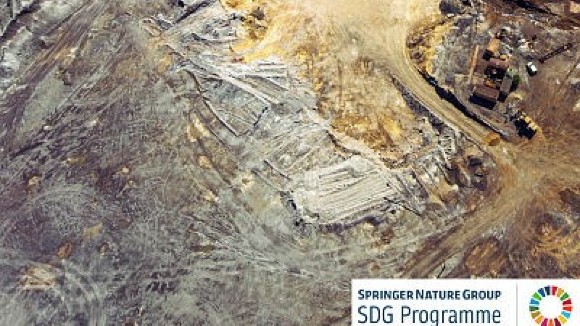Afonso Azevedo, PhD, Civil Engineering Laboratory (LECIV), North Fluminense State University Darcy Ribeiro, Campos dos Goytacazes
 Afonso Azevedo is an Associate Professor of the Civil Engineering Laboratory of the State University of Norte Fluminense Darcy Ribeiro (UENF), Brazil. His main research interest is the use and application of different industrial solid waste and/or natural fibers in different civil engineering materials. He received his BS, MS and Ph.D. Degree in Civil Engineering and post-doctorate from the UENF. He has been serving as an Editorial Board member of Scientific Reports since 2023.
Afonso Azevedo is an Associate Professor of the Civil Engineering Laboratory of the State University of Norte Fluminense Darcy Ribeiro (UENF), Brazil. His main research interest is the use and application of different industrial solid waste and/or natural fibers in different civil engineering materials. He received his BS, MS and Ph.D. Degree in Civil Engineering and post-doctorate from the UENF. He has been serving as an Editorial Board member of Scientific Reports since 2023.
Yew Ming Kun, PhD, Department of Civil Engineering, Lee Kong Chian Faculty of Engineering and Science, Universiti Tunku Abdul Rahman, Selangor
 Associate Professor Ir. Ts. Dr. Yew Ming Kun earned his B. Eng. (Hons.), M. EngSc, and Ph.D. in Engineering from the Faculty of Engineering at the University of Malaya (UM). He actively participates in research, focusing on various areas such as formulating Ultra Lightweight Concrete, Floating Concrete, Fiber-Reinforced Concrete, Ultra-High-Performance Concrete, Green and Sustainable Construction & Building Materials, Renewable Energy, Fire Protection Materials, and Composite Materials. Dr Yew has been serving as an Editorial Board Member of Scientific Reports since 2023.
Associate Professor Ir. Ts. Dr. Yew Ming Kun earned his B. Eng. (Hons.), M. EngSc, and Ph.D. in Engineering from the Faculty of Engineering at the University of Malaya (UM). He actively participates in research, focusing on various areas such as formulating Ultra Lightweight Concrete, Floating Concrete, Fiber-Reinforced Concrete, Ultra-High-Performance Concrete, Green and Sustainable Construction & Building Materials, Renewable Energy, Fire Protection Materials, and Composite Materials. Dr Yew has been serving as an Editorial Board Member of Scientific Reports since 2023.
Mahbube Subhani, PhD, School of Engineering, Deakin University
Dr Mahbube Subhani is a Senior Lecturer in the School of Engineering at Deakin University. He is the founding member of the Engineering Timber Structures group at Deakin University. His research interests include sustainable construction materials (timber, bamboo and geopolymer concrete), composite and hybrid structures and non-destructive evaluation. Subhani has been an Editorial Board Member for Scientific Reports since 2022.
Doo-Yeol Yoo, PhD, Associate Professor, Department of Architecture and Architectural Engineering, Yonsei University, Seoul
 Doo-Yeol Yoo is an Associate Professor of Architecture and Architectural Engineering at Yonsei University, Seoul, Korea. He has been working on performance enhanced fiber-reinforced cementitious and alkali-activated composites. He serves on the editorial board of five international journals and has received several prestigious awards, including World’s Top 2% Scientists 2023 (Stanford University). He has been serving as an Editorial Board Member of Scientific Reports since 2023.
Doo-Yeol Yoo is an Associate Professor of Architecture and Architectural Engineering at Yonsei University, Seoul, Korea. He has been working on performance enhanced fiber-reinforced cementitious and alkali-activated composites. He serves on the editorial board of five international journals and has received several prestigious awards, including World’s Top 2% Scientists 2023 (Stanford University). He has been serving as an Editorial Board Member of Scientific Reports since 2023.

